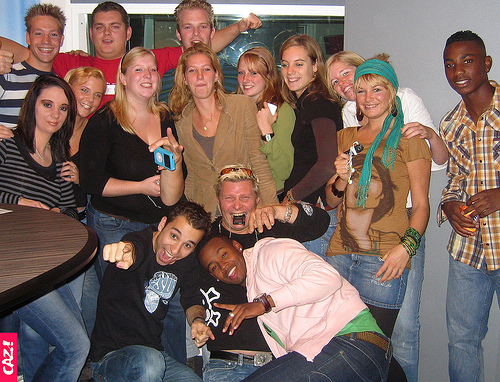
The idea that friends are the new family might go deeper than purely cultural patterns. A US study raises the possibility that genetics may contribute to who we do and don’t form friendships with.
James Fowler, an assistant professor at the University of California, San Diego, has previously looked into the way humans form social networks in “real life” as well as online. He decided to examine whether there was a genetic basis to those patterns by looking at two US studies that contain data both about the genetics and friendships of those tracked in the study.
Before going any further, it’s important to note that (even beyond the usual caveats of scientific research results), what Fowler found was far from conclusive. With four of the six genetic markers studied, there was no clear pattern at all.
However, the findings did show that people with the DRD2 marker, which is associated with a tendency towards alcoholism, were likely to form “clusters” of friendships with one another. Meanwhile people with CYP2A6, which has been linked both to the metabolism of nicotine, and openness to new ideas, tended to form friendships with one another.
How much of this pattern is genetic and how much is down to social behavior is hard to tell. For example, there’s certainly a strong argument that people who drink a lot are more likely to spend more time in bars and strike up friendships. Then again, those whose bodies are able to cope with heavy smoking should theoretically be less likely to make friends with each other according to the genetics, but in reality many smokers can form friendships through the common bond of being forced outdoors or to designated smoking areas.
The most interesting outcome of the research isn’t so much the specifics of the gene, but rather the wider pattern that it suggests: that people can be likely to form friendships not only with those who are genetically similar, but also those with genetic differences.
It follows on from previous exploration of whether the idea that “opposites attract” is purely a social phenomenon, or if there’s a genetic element to it. There is a theory that people susceptible to genetic conditions may be wired to avoid those who could be susceptible to the same condition, thus reducing the chances of passing it on to children.
(Image credit: Flickr user iDJs (CC))
